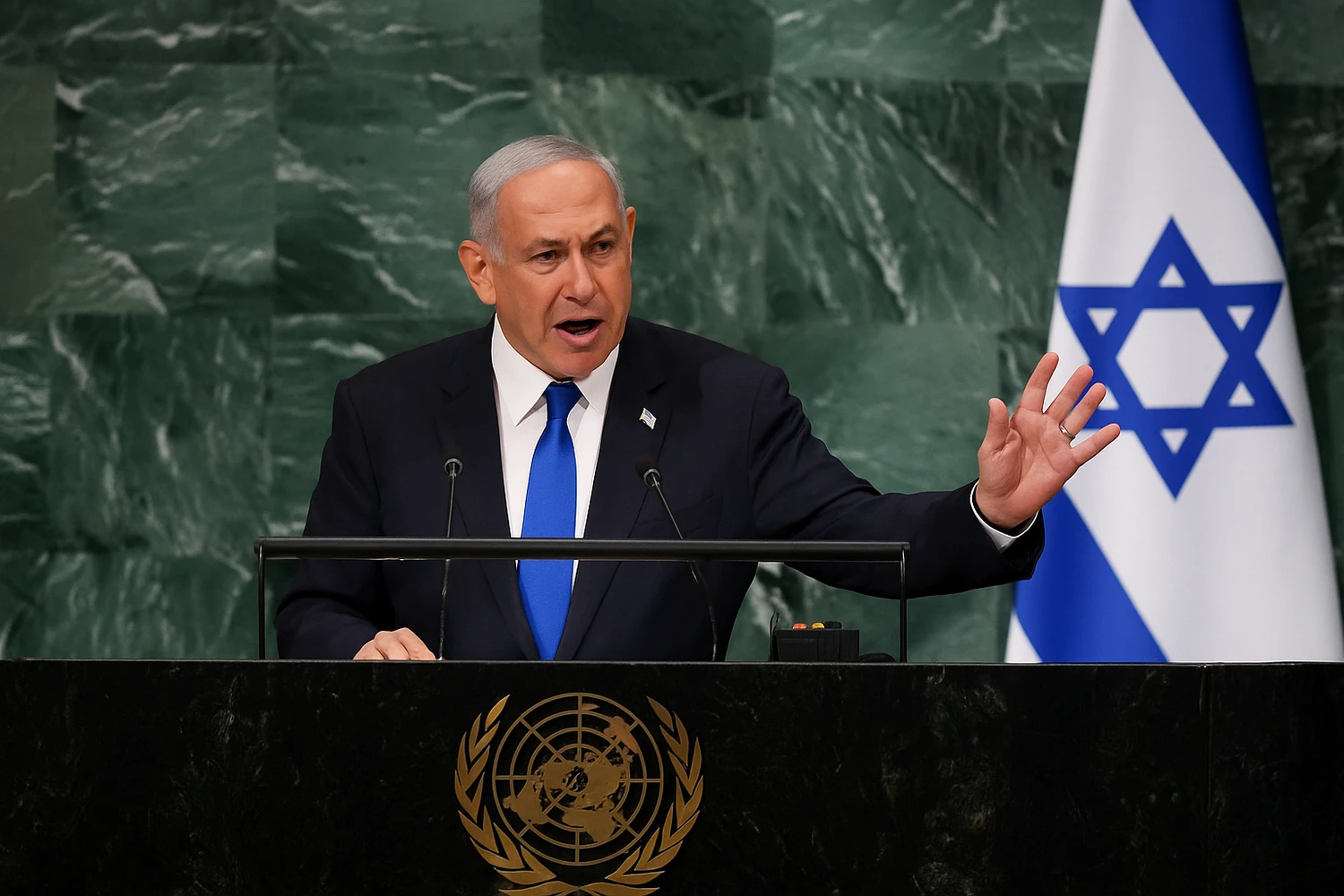Israeli Prime Minister Benjamin Netanyahu’s Gaza speech was not just another performance at the United Nations. It was a carefully staged act of political theater, where biblical language collided with modern surveillance. By quoting Moses — “Let my people go” — Netanyahu tried to claim a moral high ground, while Israel hacked every phone in Gaza to broadcast his words. The gesture raises urgent questions: is this leadership, or pure propaganda wrapped in religion?
Context: the official narrative
Netanyahu stood before the UN General Assembly and declared that Israel “remembers Oct. 7.” His speech painted Hamas as “monsters” who slaughtered 1,200 people, including Americans and foreign nationals, and held over 250 hostages. He repeated the gruesome images — “beheaded men,” “burned babies alive” — designed to shock the world into obedience to his framing.
So far, Israel has reportedly freed 207 hostages, while 48 remain in Gaza. Netanyahu insisted that Israel fights not just for survival, but for justice. For the mainstream media, the message was clear: Israel is the victim, the avenger, and the biblical heir of Moses all at once.
Oppositional Argument: manipulation in plain sight
But what if this Gaza speech was less about truth and more about psychological warfare? Israel’s hacking of Palestinian phones to beam Netanyahu’s speech directly into Gaza was not an innocent act of communication. It was domination — a symbolic invasion of the private sphere.
By invoking Moses, Netanyahu wasn’t channeling liberation, he was exploiting scripture to legitimize war. The irony is striking: he told Gazans “let my people go” while ensuring their own people remain trapped in blockaded ruins. This is not freedom rhetoric; it is narrative control.
Analytical Breakdown: biblical words, digital power
Why does Netanyahu need to hack phones? Because international legitimacy is slipping. Protests against the war are growing in Western capitals. Even allies like the United States are showing fatigue. In that context, projecting his Gaza speech directly into enemy territory becomes a desperate attempt to seize narrative power.
The method reveals more than the message: Israel weaponized technology, bypassing traditional media, to impose its story. It’s a demonstration of cyber-power, but also of insecurity. Leaders confident in their case don’t need to hijack phones — they let free debate carry their message.
Human Perspective: Palestinians silenced
For ordinary Gazans, receiving Netanyahu’s Gaza speech on their phones was a chilling reminder of surveillance. Imagine losing your family to bombings, then having the prime minister of the country responsible hijack your device to repeat biblical slogans. It feels less like dialogue and more like psychological torment.
Many Palestinians interpret this intrusion as an extension of occupation. Not just land and resources are under control — now even the digital space is colonized. The act says: your voice doesn’t matter; only my narrative counts.
Counterarguments
Supporters argue that Netanyahu’s Gaza speech was necessary to remind the world of Hamas’ crimes. They claim Israel must use every tool, including digital broadcasting, to defend itself.
Yet this defense collapses under scrutiny. Repeating horrors does not absolve a government of its own. Broadcasting to Gaza is not a humanitarian gesture but a coercive one. Using Moses’ words does not turn a war into liberation. Instead, it devalues history, religion, and human suffering.
Conclusion: propaganda disguised as scripture
Netanyahu’s Gaza speech shows the collision of ancient words with modern propaganda. By quoting Moses while hacking phones, he blurred liberation with domination. This was less about truth and more about imposing Israel’s narrative at all costs.
The world must recognize this for what it is: propaganda disguised as biblical prophecy, amplified through digital surveillance. To mistake it for leadership is to surrender to manipulation. Real liberation comes from justice, not coercion.
External Links
143 views






